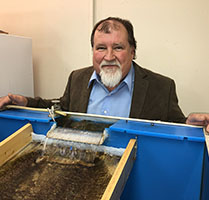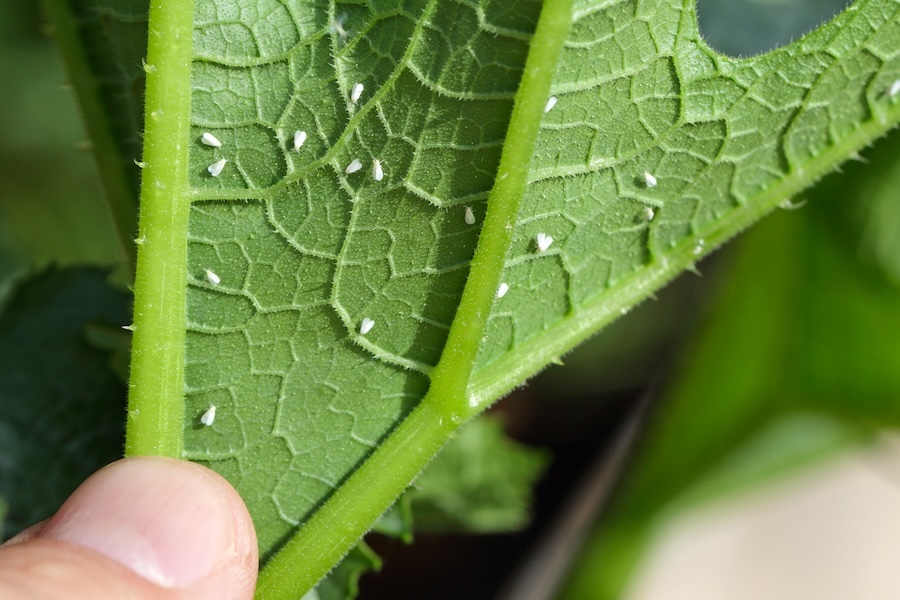The University of Georgia Black Fly Rearing and Bioassay Laboratory has been awarded a contract with the National Institutes of Health’s (NIH) National Institute of Allergy and Infectious Diseases (NIAID) to provide partial support for the world's only black fly colony.
The site, which will operate as the NIH/NIAID-supported Black Fly Research and Resource Center, received $109,790 in funding for the first year, with the possibility of three years of renewal. This support forms a collaborative effort between NIH/NIAID and the UGA Department of Entomology to continue the operation of this one-of-a-kind resource.
Professor Darold Batzer of the Department of Entomology in the UGA College of Agricultural and Environmental Sciences is the principal investigator for this effort, and entomology researcher Elmer Gray will be the assistant project director. Ray Noblet, a former head of the department, will serve as scientific advisor to the project.
The laboratory was established at UGA in 1999 when Noblet and Gray arrived at the university. The black fly colony is a unique resource that was initiated in 1981 at Cornell University. Black flies (Diptera Simuliidae) require flowing water to complete their life cycle. The colony simulates this environment with nine aquatic rearing units that create miniature rivers for the larval and pupal stages to develop. Each unit can support approximately 300,000 larvae. Adult flies emerge within the rearing units and are captured, mated and provided moistened substrates to serve as egg laying sites.
The colony has been used for a variety of research projects through the years, including a wide range of vector transmission studies, environmental monitoring, vector control and larval feeding studies. The laboratory continues to conduct and collaborate on a wide range of research projects and provides all stages of the black fly life cycle to collaborating laboratories.
Current research being conducted in the laboratory involves larvicidal efficacy evaluations, topical repellent evaluations and growth studies related to climate change. The laboratory has also served as a preferred site for teaching and educational outreach visits for a wide range of graduate, undergraduate and high school students.
The NIH/NIAID support will help to ensure the continued maintenance of this very unique resource and will serve to stimulate additional research with black flies and the disease pathogens that they can vector. An important aspect of this support is that it will increase the awareness of this site, thereby increasing its impact in the public health/vector biology field.
In addition, the Black Fly Research and Resource Center will work in parallel with the NIH-supported Filariasis Research Reagent Resource Center (FR3) that is directed by Andy Moorhead in the UGA College of Veterinary Medicine. The mission of FR3 is to provide filarial-related biological products to researchers across North America. The combination of these two unique facilities at the University of Georgia only further demonstrates the university’s commitment to research excellence.
More information on the UGA Black Fly Research and Resource Center is available at site.caes.uga.edu/blackflylab/about.





.png)

